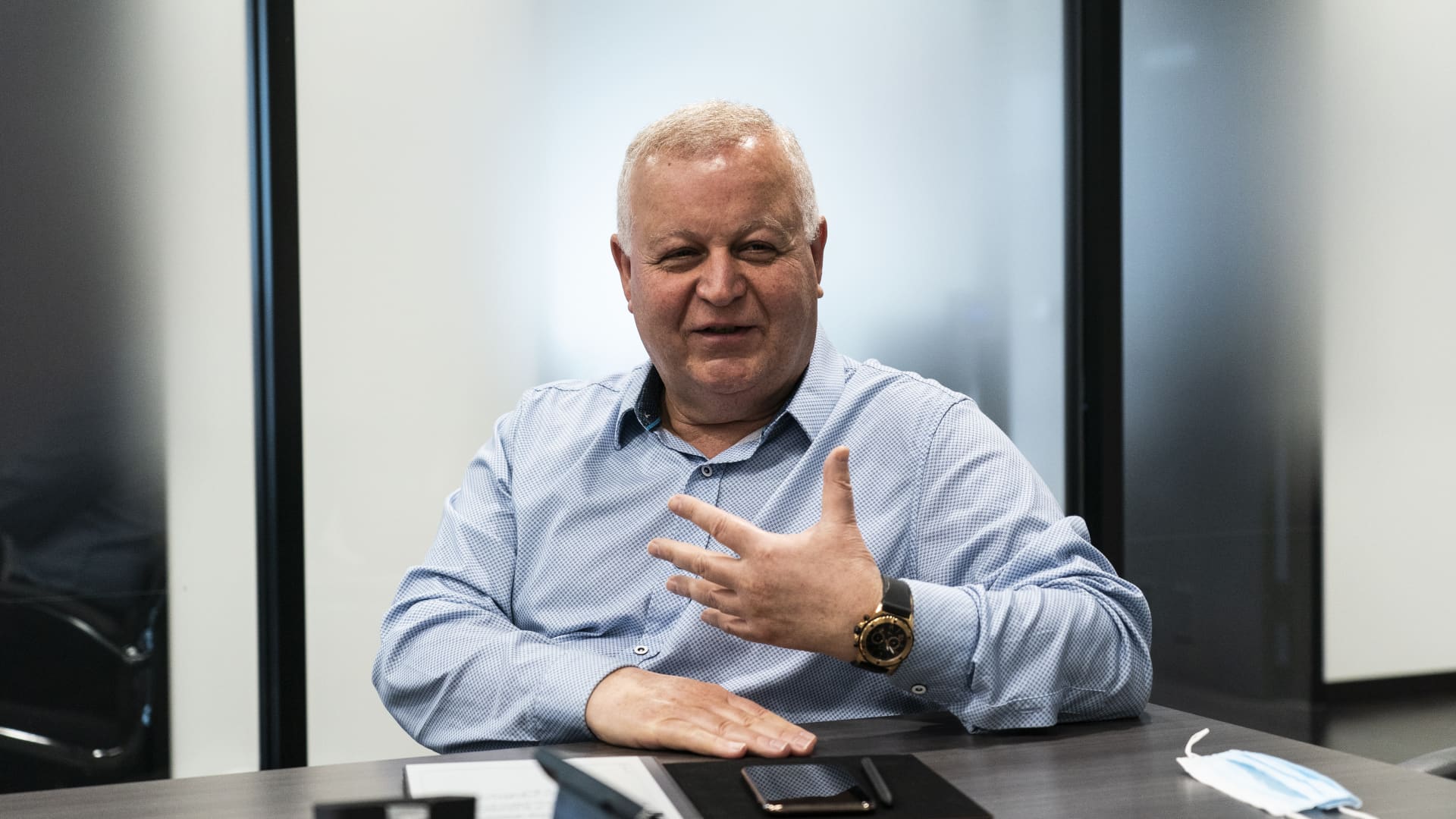Jeff Bezos wants to build permanent outposts on the moon and colonize space. Richard Branson wants to make spaceflight as commonplace as air travel. Elon Musk wants to settle Mars to make humanity multiplanetary.
IBX’s Kam Ghaffarian wants to go even further: the stars.
“There’s this common denominator of combining altruism, to do something purposeful and good, and combine it with capitalism to make a positive impact,” he told CNBC’s Morgan Brennan at the Space Symposium in Colorado Springs. “The vision for IBX is protecting our home, our planet, and then finding new homes and stars and everything involved to do that. So, on the space side, if we say that the ultimate destiny for humanity is interstellar travel, and going to the stars, then we need to take a lot of intermediary steps to do that.”
It might sound farfetched if it wasn’t for his track record. Ghaffarian has been instrumental in ushering in the new space economy, having co-founded and invested in a cadre of commercial space ventures.
Publicly traded Intuitive Machines, where Ghaffarian is co-founder and executive chairman, recently made history when its Odysseus spacecraft successfully landed on the moon, becoming the first commercial lander to do so.
Ghaffarian is also the co-founder and chairman of Axiom Space, which now regularly sends private astronauts on commercial missions to the International Space Station — the first company allowed to connect modules and provide full-service missions to the ISS — as it works to build its own space station.
With Quantum Space, where he’s also the executive chairman, the focus is on deep space commerce and communication through a superhighway of satellites stretching from earth orbit to the moon and beyond; X-Energy, which he founded, has developed operating nuclear reactors that it says are “designed to be intrinsically safe,” as well as nuclear propulsion capabilities.
His family office, IBX (which stands for “Imagine, Believe, Execute”) sits at the center of this space exploration constellation.
“We’ve got to do all the intermediate steps. I’m with Elon [Musk] and Jeff [Bezos], both my dear friends, to be able to first do the LEO [low earth orbit], be able to go to the moon and Mars, because we’ve got to do those before we can go interstellar,” Ghaffarian explained on CNBC’s Manifest Space podcast.
Follow and listen to CNBC’s “Manifest Space” podcast, hosted by Morgan Brennan, wherever you get your podcasts.
Unlike other high-profile billionaires building commercial space companies, Ghaffarian made his fortune through the space industry, and rather than focusing on access to space, he’s leveraging those falling costs to build out infrastructure and business activities in space.
The Iran-born entrepreneur, who emigrated to the U.S. some four and a half decades ago, co-founded a government services company called Stinger Ghaffarian Technologies that became a top contractor for NASA before KBR acquired it in 2018.
“If you create a company that is fantastic, and you develop unbelievable technologies, but nobody wants to buy it, or there is no business case, then you will have not made any difference,” Ghaffarian said. “How do you create a business model where you are purposeful, you’re making a difference, but also … can provide return to the investors in a massive way?”
Ghaffarian believes the space economy will be worth trillions of dollars — and sooner than many realize. He sees the technological leaps forward in artificial intelligence and quantum computing as crucial to unlocking the full potential of space.
He said microgravity-based pharmaceutical research and industrial manufacturing, sustainable propulsion and energy sources, and the building out of lunar infrastructure will be some of the capabilities and services in greater demand in the coming years.
“It’s normal for people to not quite appreciate it. …. When did people appreciate the AI revolution — 10 years ago? Not really, right? And all of a sudden, now we have this herd mentality that everybody’s jumping in” said Ghaffarian, who also cited the early days of Alphabet, Amazon, Apple, Tesla and SpaceX, even air travel, as templates for the space world. “I think we are in the beginning of that in this space exploration and space ecosystem, space economy, and it’s still not there, but my belief is that it is taking off and it’s going to grow rapidly, and I truly believe that they’re underestimating the size of the market.”
As investors catch on, the space billionaire’s ventures will continue to shoot for the stars.
